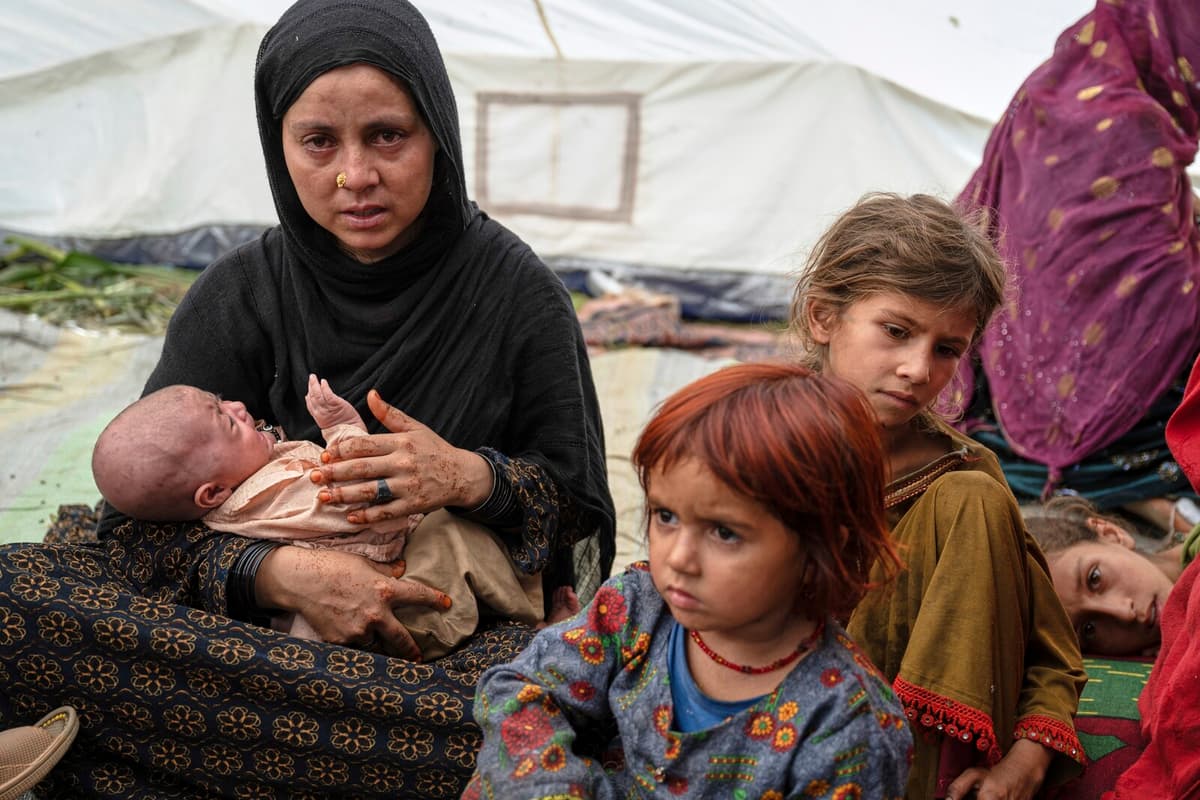In pictures taken after the quake, men can be seen on stretchers, men inspecting rubble, men carrying the injured to helicopters. Almost everywhere, only men.
More than 2,200 people have been confirmed dead in the earthquake that hit northeastern Afghanistan on Sunday. Now, alarms are being raised that rescue and medical work prioritize men over women. When the dust settles, the numbers are feared to show the same dark imbalance as in previous natural disasters in the country: that women make up the majority of the victims.
”Women and girls will once again bear the burden of this disaster,” notes Susan Ferguson, UN Women's representative in Afghanistan, in a statement.
Dare not go to the hospital
There is no formal Taliban ban on women receiving care from male doctors, but rather widespread cultural decrees that it is ”unacceptable”. Women are also not allowed to train as doctors, according to the ultra-religious decrees introduced by the extreme Islamist Taliban.
People in the villages know that there are not enough female staff in the hospitals and dare not take their injured women and girls to medical facilities. Families try to care for women with minor injuries at home instead of taking them to the hospital, says doctor Abdul Qayum Raheem to Radio Azadi, the US-funded Radio Free Europe/Radio Liberty's Afghan branch.
In the earthquake that hit Herat in western Afghanistan in October 2023, women made up almost six out of ten of those killed and nearly two-thirds of the injured, according to the WHO. Women were also the hardest hit in the major earthquakes in eastern Afghanistan in June 2022, according to the aid organization International Rescue Committee.
Male guardian
Women died and were injured in disproportionately high numbers for a number of reasons. One of them is that more women and children – as a result of the restrictions under the Taliban's gender apartheid – are simply at home, within the four walls of the home. And then the houses collapse, says Lauryn Oater at the aid organization Right to learn Afghanistan to CBC News.
In recent years' floods and earthquakes, women have also wasted precious time putting on their mandatory hijab before daring to leave their ruined homes, according to interviews conducted by The Washington Post last year. Widows who have left their homes have been questioned for going out without a male guardian.
In earthquakes, it's a matter of minutes and seconds. Delays in escape can lead to more female victims, says Abdul Qayum Raheem to Radio Azadi.
The Taliban movement's ideology combines an extreme and fundamentalist interpretation of Islam with the ancient cultural code of pashtunwali, named after the ethnic group pashtuns who make up the Taliban's backbone.
Formally, the movement was born in 1994, but the foundation was laid earlier in the Pakistani refugee camps where many Afghans fled from the Soviet invasion in 1979.
In 1996, the movement conquered Afghanistan's capital Kabul. It controlled large parts of the country until the US-led invasion in 2001, and then regained power in a lightning-fast offensive on August 15, 2021, after US forces withdrew.
The Taliban's exercise of power is described as conservative, brutal, and arbitrary. Just like during their first time in power, the Taliban now rule with their interpretation of Islamic sharia laws, which in practice means extreme oppression of women.
Women have been forced out of universities and from almost all jobs, music has been banned, and public executions and floggings have been reintroduced. Women and teenage girls must cover their bodies and faces and avoid leaving home. They are also not allowed to travel without a male guardian, a so-called mahram.






